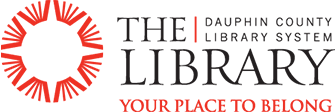The Library’s Role in Recovering from Pandemic Leaning Losses
Recent articles like one published in the journal, Education Week titled, Students’ Math and Reading Plummet, Erasing Years of Gains, National Assessment Finds; Student achievement crashed, and the declines were greatest among the most vulnerable students by Sarah Schwartz report that the pandemic contributed to “historic declines in students’ math and reading abilities.” Reports from National Assessment of Educational Progress (NAEP) indicate that in the past two years, math scores dropped seven points and that reading scores fell by five points in nine-year-old students.
Dealing with pandemic learning loss is a challenge that schools will be facing for years to come. Studies done by NWEA, a not-for-profit organization that creates assessments to measure Pre-K-12 educational growth and proficiency, show that while elementary students are regaining some ground back, K-12 students are years away from fully recovering from the pandemic losses. Students at the middle school level are making slower, or in some cases, no progress in recovering educational losses. Ali Tadayon, in his online article, Elementary Students are Recovering Faster From Covid Learning Loss, Research Shows, further reports that NWEA anticipates that it might take elementary students three or more years to recover losses. It is expected to take older students five or more years to do so. That means, for some, full recovery of learning losses will not be attainable before the end of high school.
To me, it is clear that the pandemic will continue to impact educational performance across all grade levels for the foreseeable future, and while schools and teachers will assume most of the responsibility for addressing pandemic losses, they cannot address them alone and be fully successful. Parents and other community organizations like libraries need to be involved with this recovery.
As a parent, what are some things that you can do? Here are some of my suggestions:
§ Research articles and resources focused on this topic. Two that I found are
o Four Ways to Recover Pandemic Learning Loss
o What Parents Need to Know About Pandemic Learning Recovery
[To view, just click the title]
§ Learn how your child is doing now by speaking with their teacher.
§ Explore the resources made available by your school for receiving extra help.
§ Take advantage of free tutoring resources, like the online tutoring from Tutor.com offered by libraries. (Note: For remote access toTutor.com, click on the Tutor.com link and enter your library card number and PIN where prompted. At the Dauphin County Library System, you will find Tutor.com at www.dcls.org/schooltools or www.dcls.org/databases .)
§ Continue to visit your public library, either in-person or remotely. Borrow books and read together often.
§ Consult the Youth Services public library staff for assistance. They are experts in reading and basic literacy.
§ Learn how to use library databases, eBooks, and other digital content. Library staff are available to provide instruction if needed, so visit or call. (Learning how to confidently use your library’s digital resources will allow you to help your children find educational resources and foster success. These materials are widely available to library members. They are accessible 24/7 and are perfect for both in-class and remote learning.
§ Encourage reading for both enjoyment and learning.
The Covid-19 pandemic put a spotlight on education, causing us to adjust how lessons are presented and how progress and performance is measured. It highlighted known discrepancies and disparities in our educational systems. Those that are now struggling the most with pandemic learning losses are those who were struggling before the pandemic, those who had limited access to high-speed internet and computer technologies, and those who did not have at-home guidance from knowledgeable parents or guardians. It became even more evident that learning how to learn is vitally important and that the learning process is one that will be ongoing throughout life.
Know that The Library has been and always will be a place for life-long learning.
I encourage you to explore this library’s free resources. Start by visiting www.dcls.org. For eBooks, visit www.dcls.org/ebooks; and to find our databases, visit www.dcls.org/databases . If you haven’t visited a library since the start of the pandemic, it is a great time to brush the dust off your library card and explore!

Ann Marie
Information Services Assistant
__________________________________________________
References
Schwartz, Sarah. “Students’ Math and Reading Plummet, Erasing Years of Gains, National Assessment Finds; Student achievement crashed, and the declines were greatest among the most vulnerable students.” Education Week, vol. 42, no. 4, 7 Sept. 2022, p. NA. Gale Academic OneFile, link.gale.com/apps/doc/A716641468/GPS?u=pl3414&sid=bookmark-GPS&xid=a24afbcb. Accessed 22 Sept. 2022.
Tadayon, Ali. “Elementary Students are Recovering Faster from Covid Learning Loss, Research Shows.” 29 July, 2022.https://edsource.org/. Accessed 22 September 2022.




